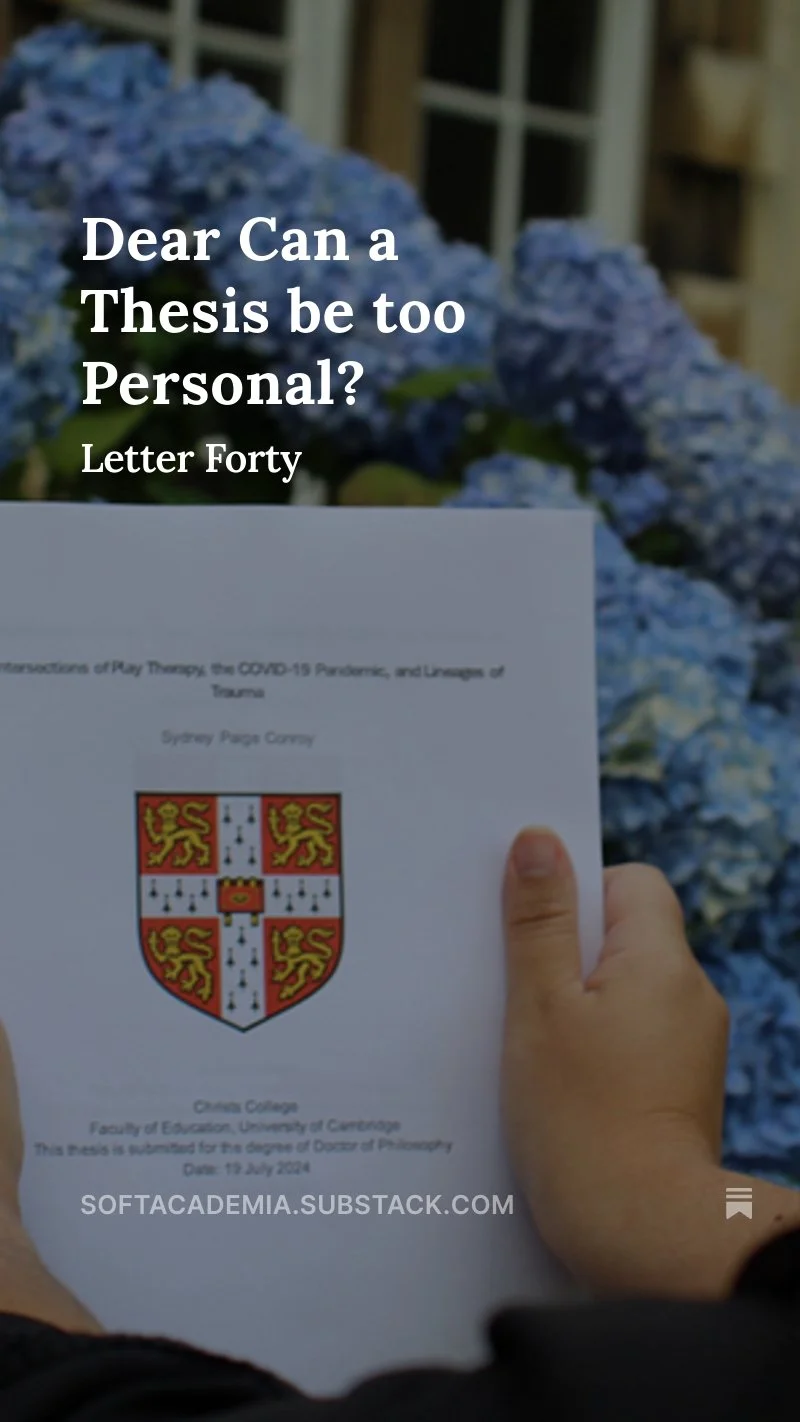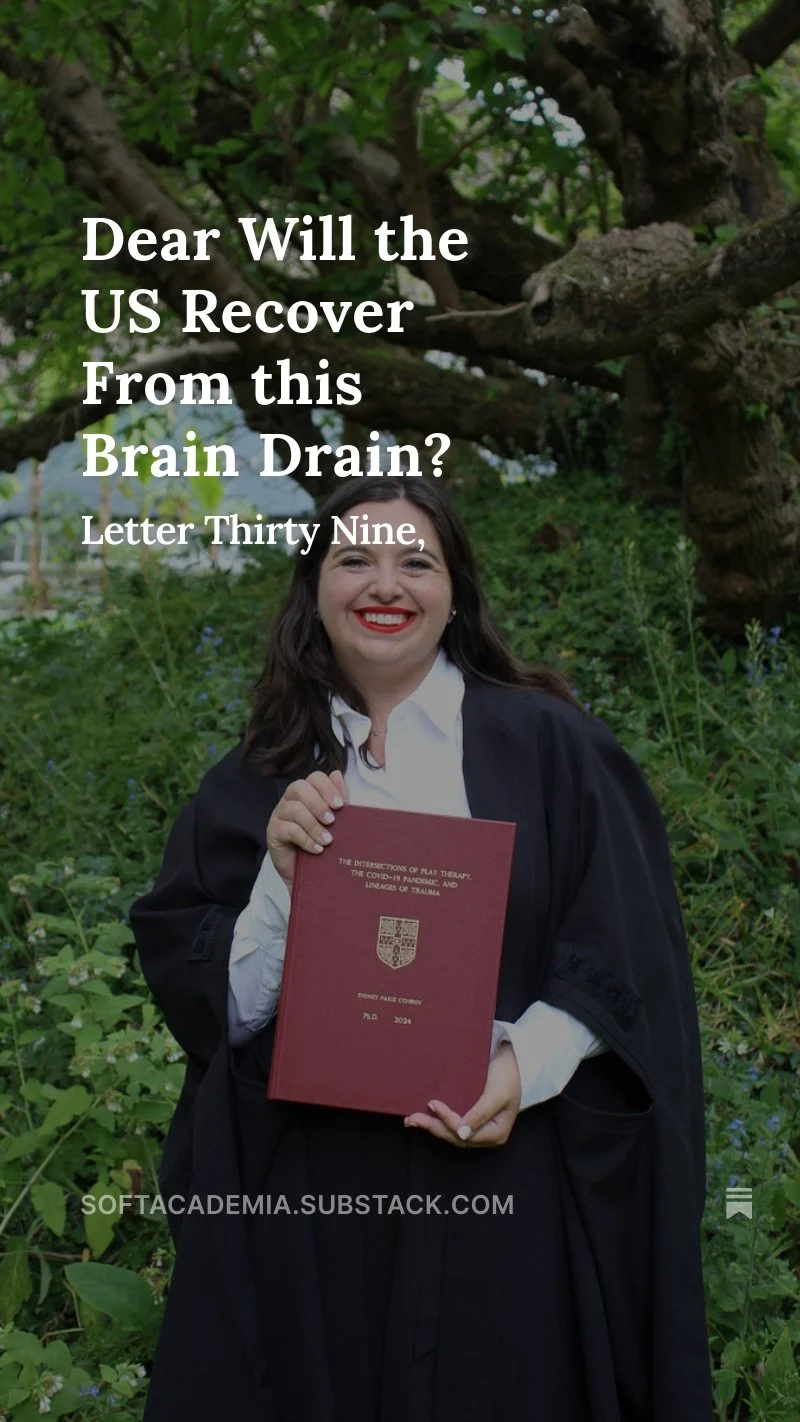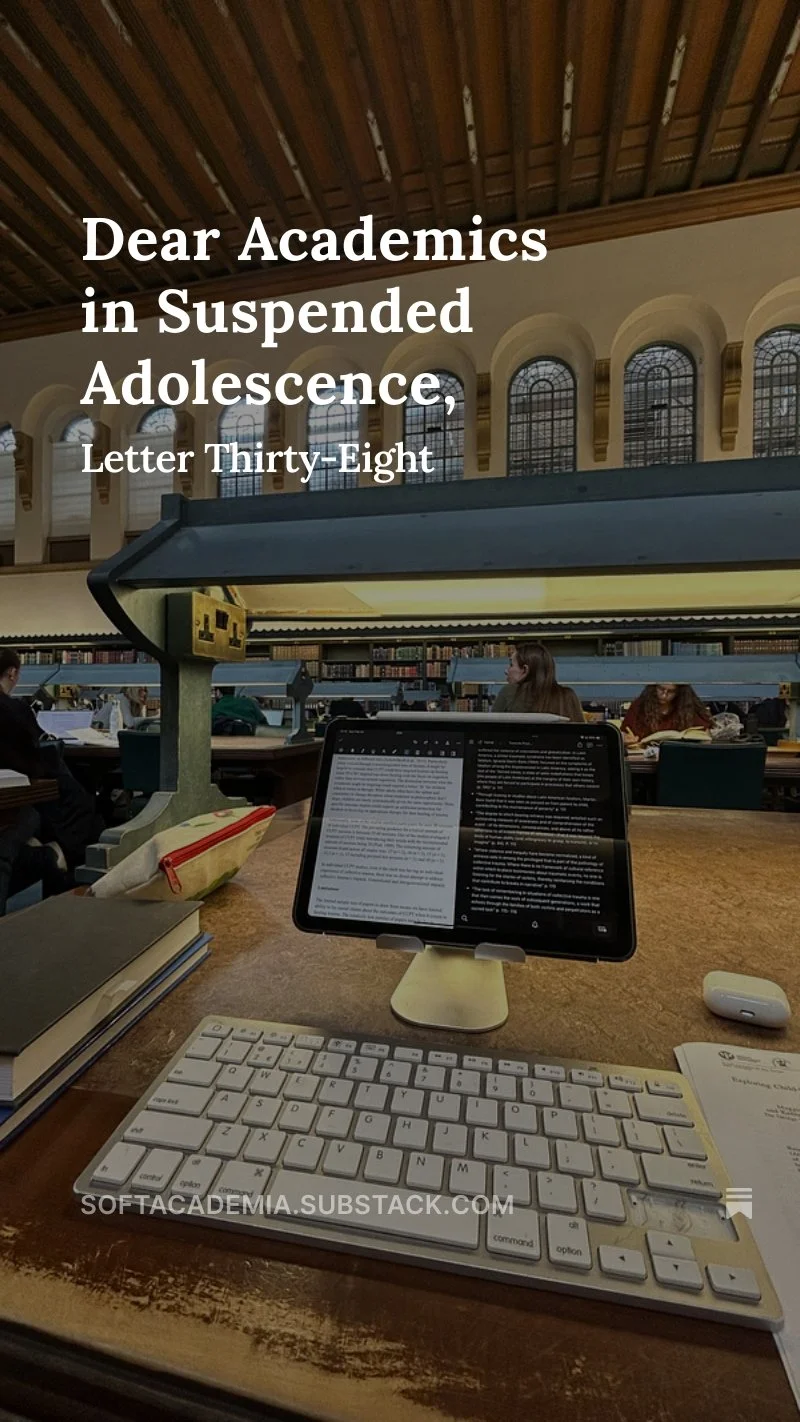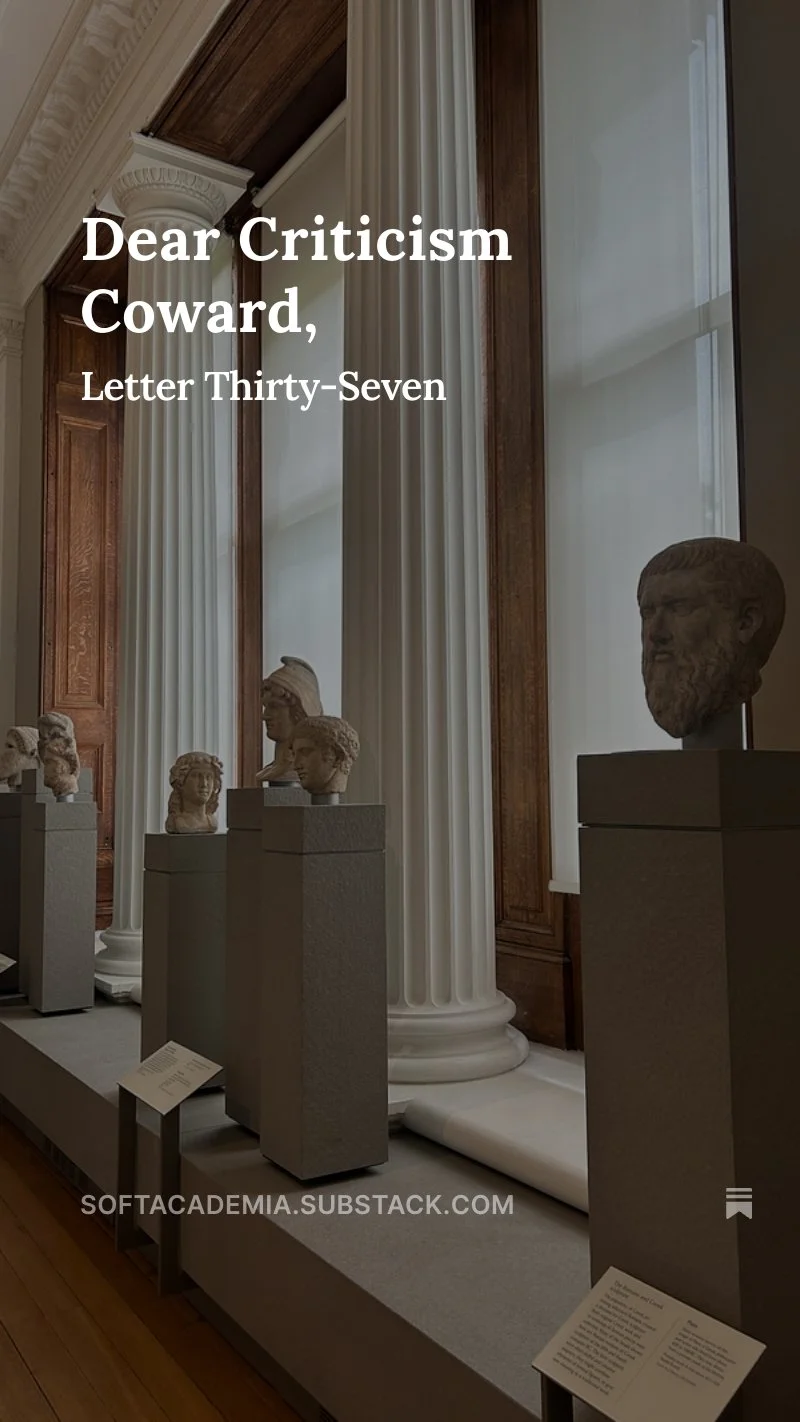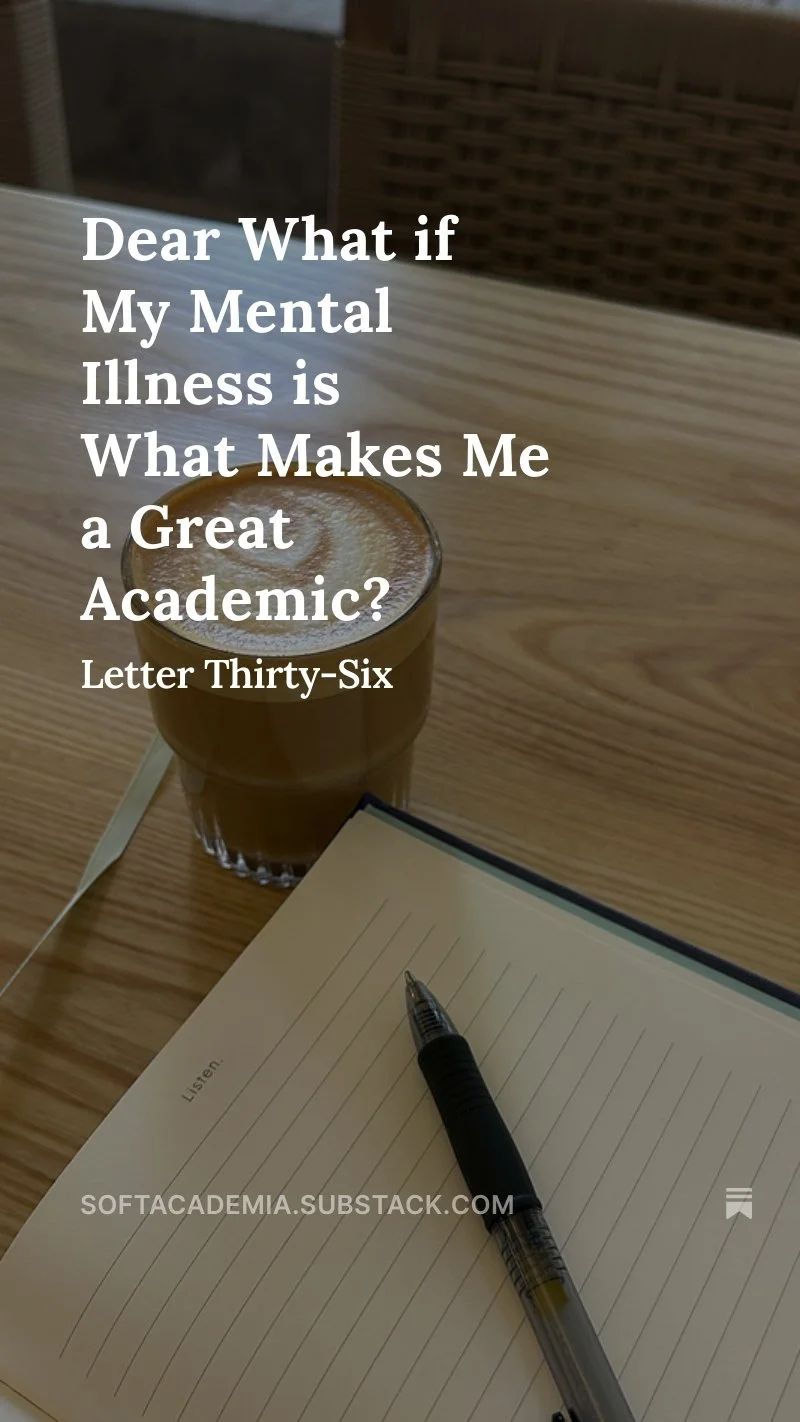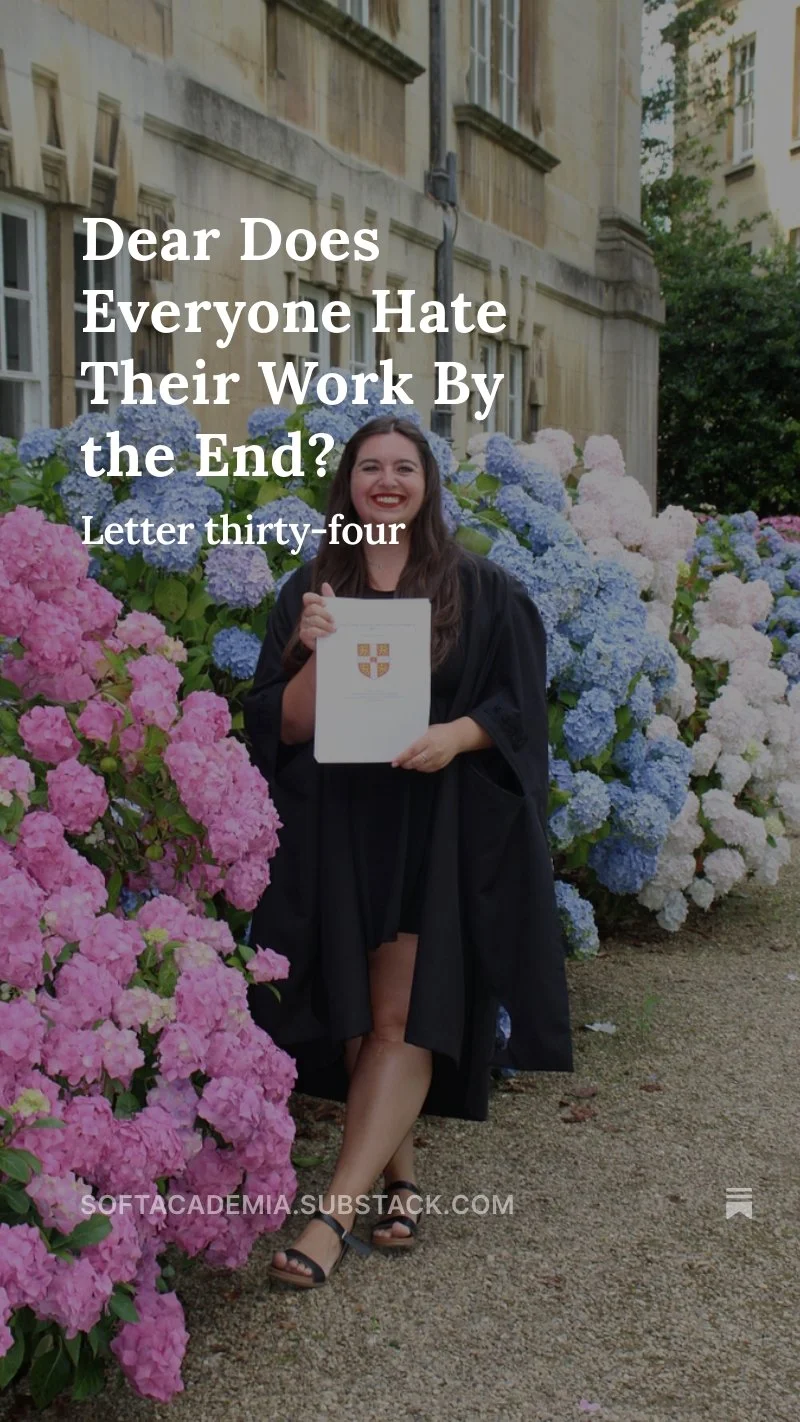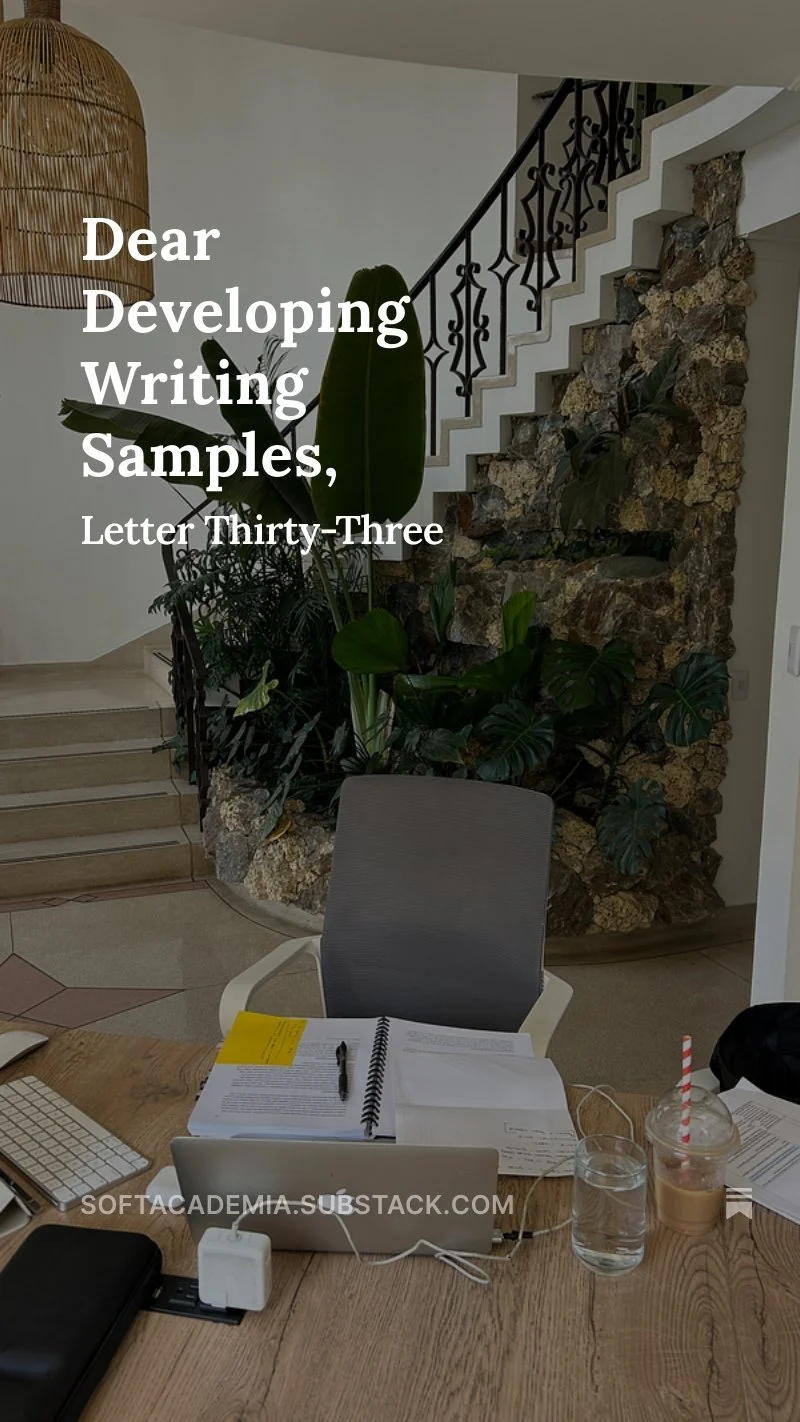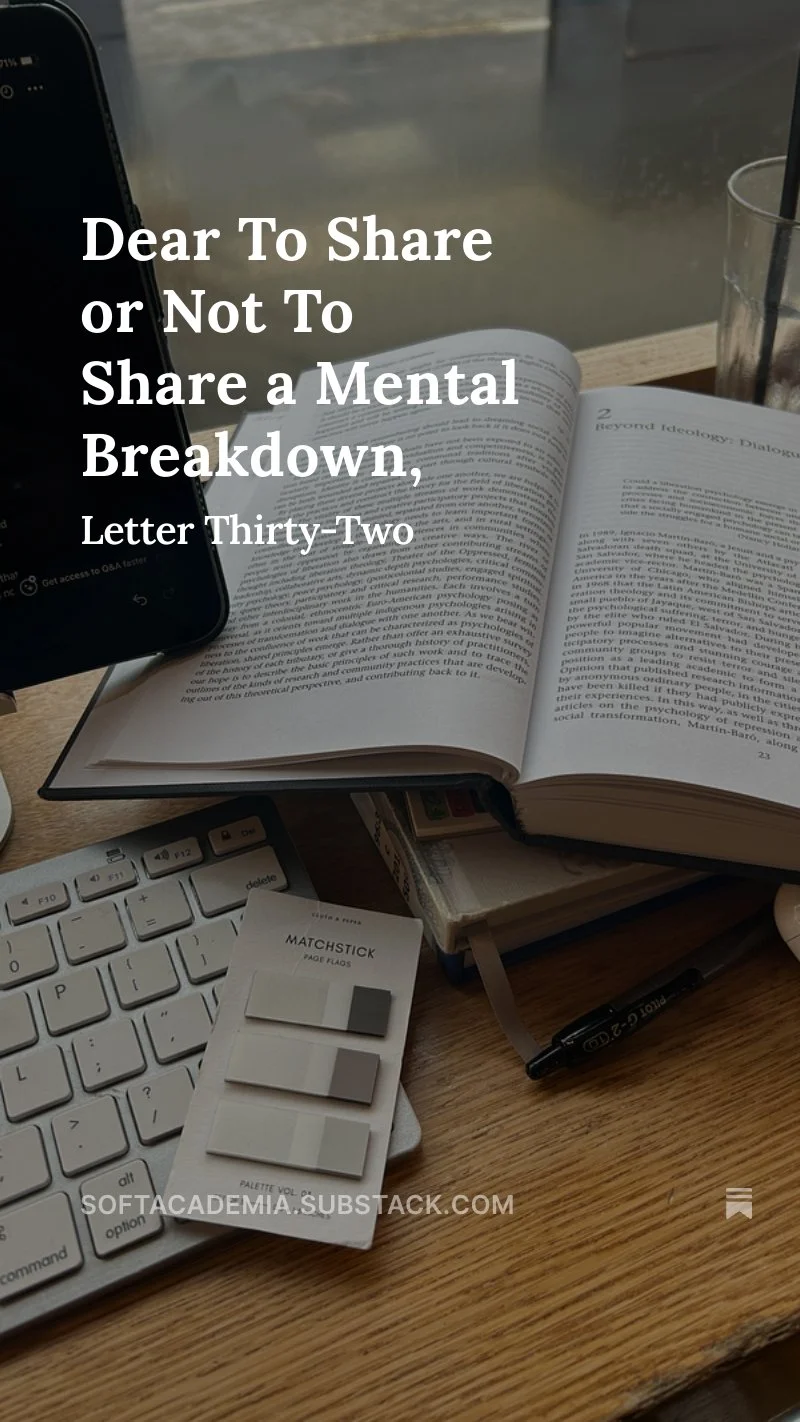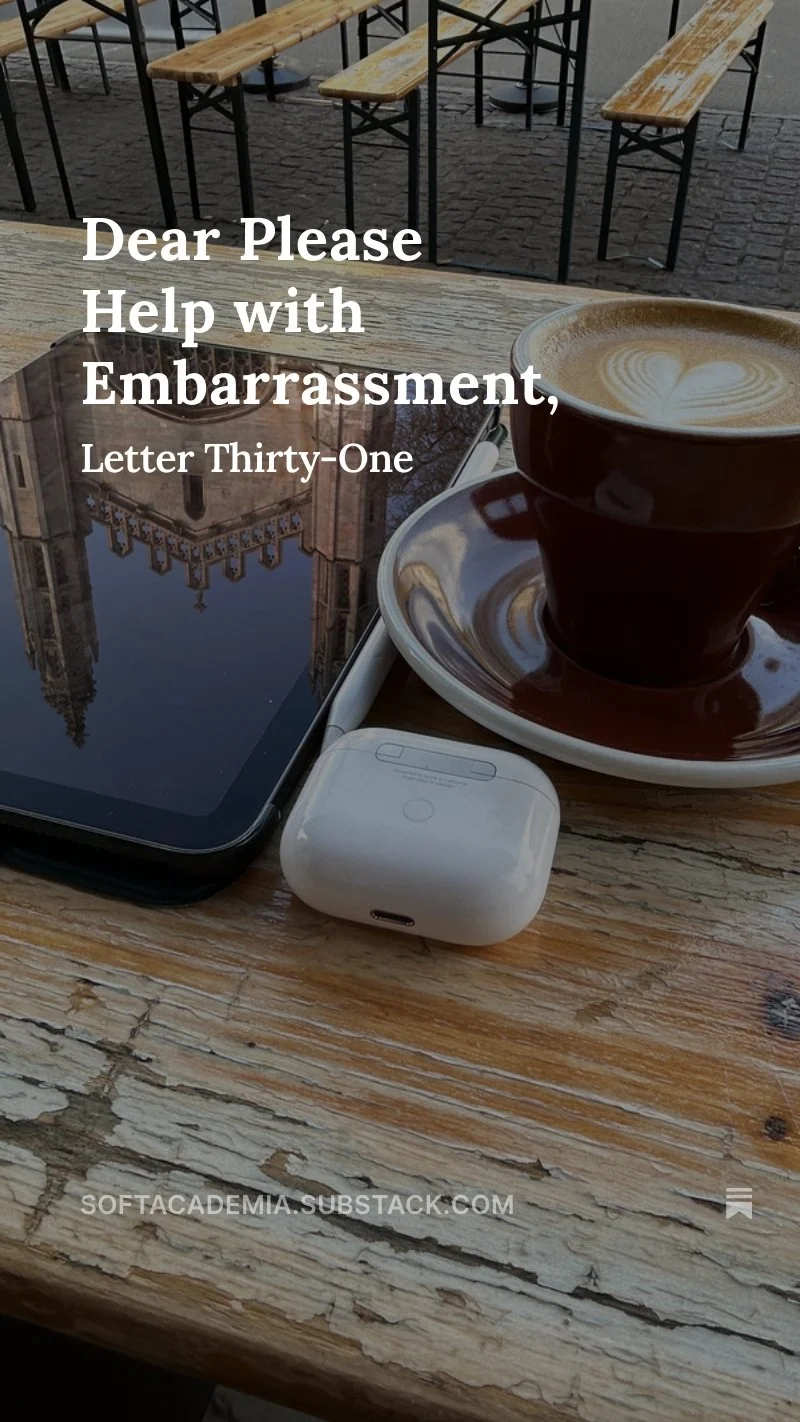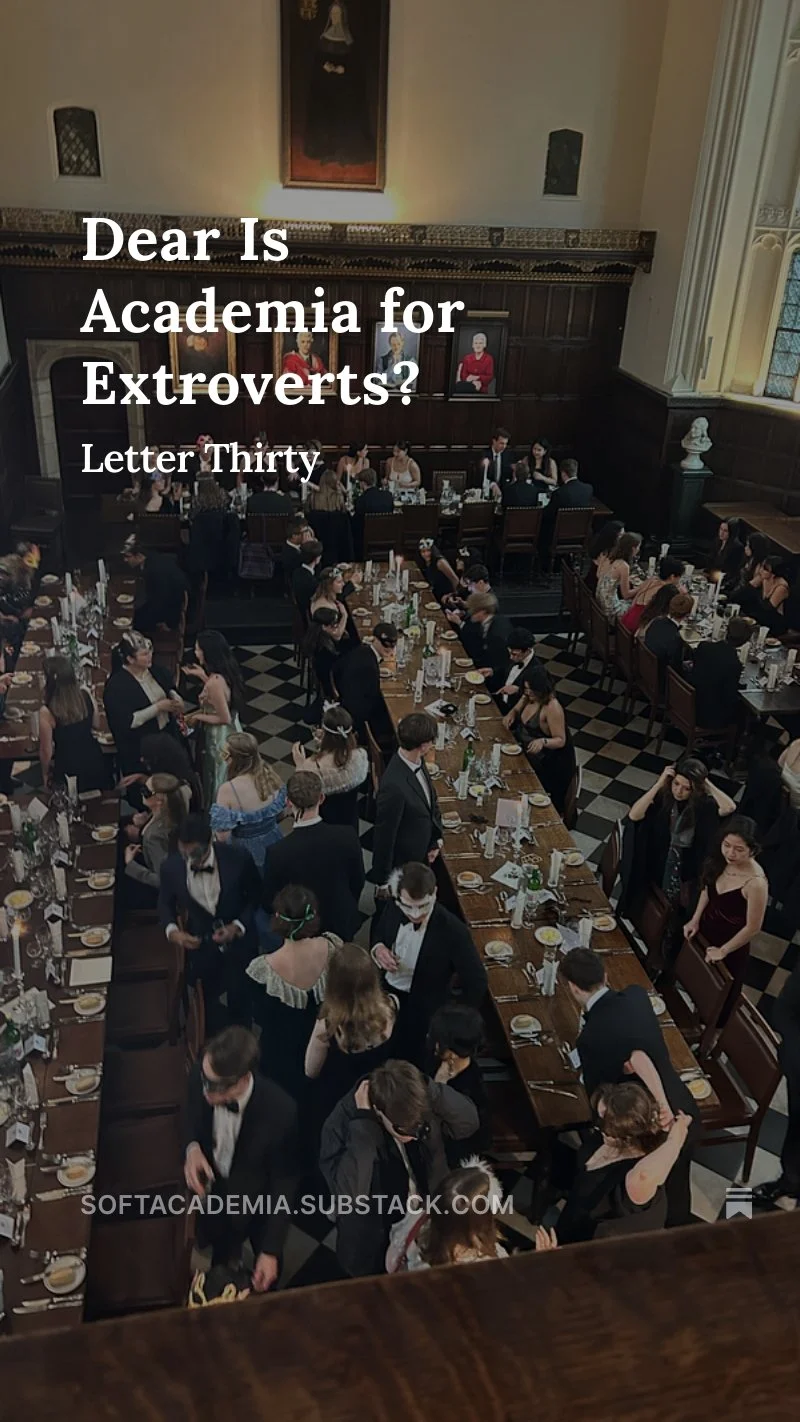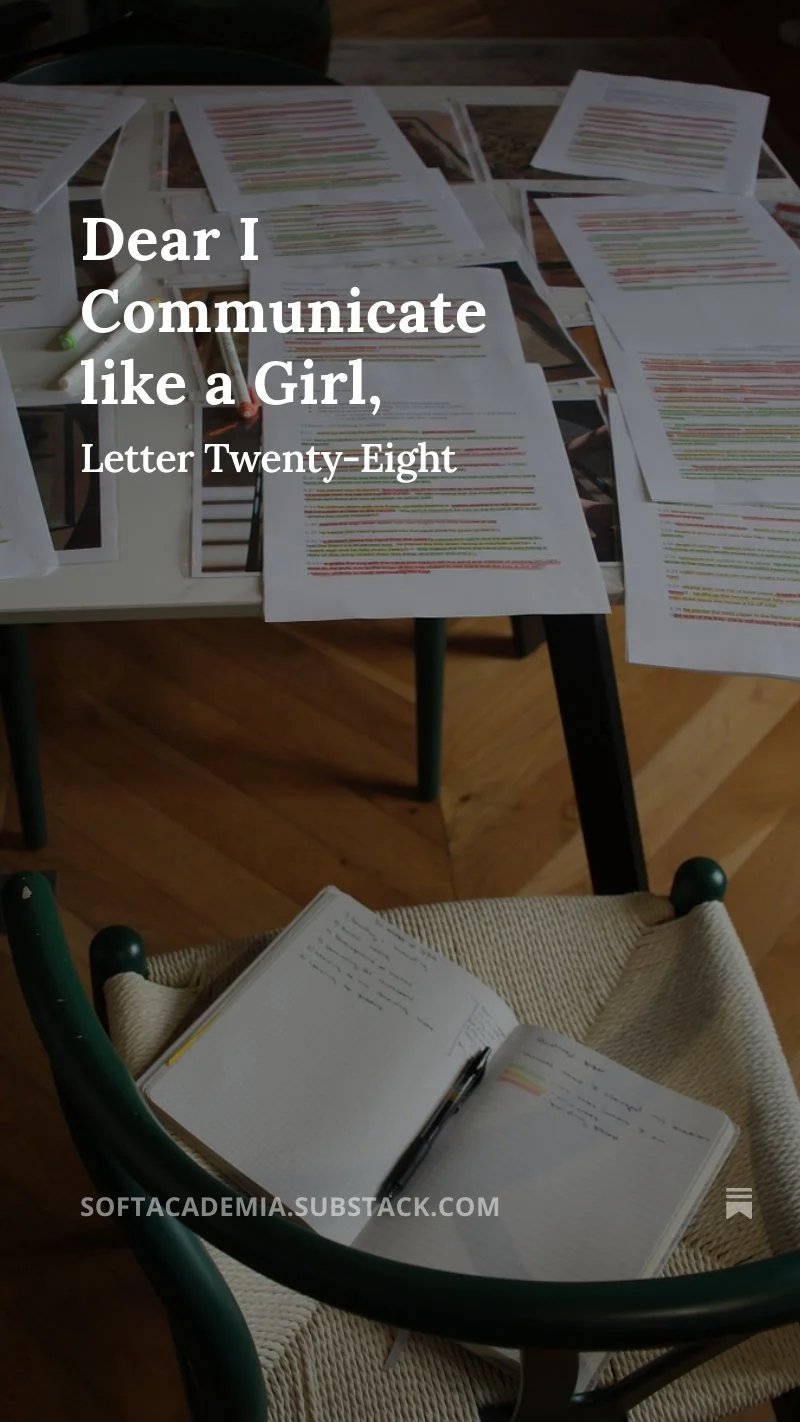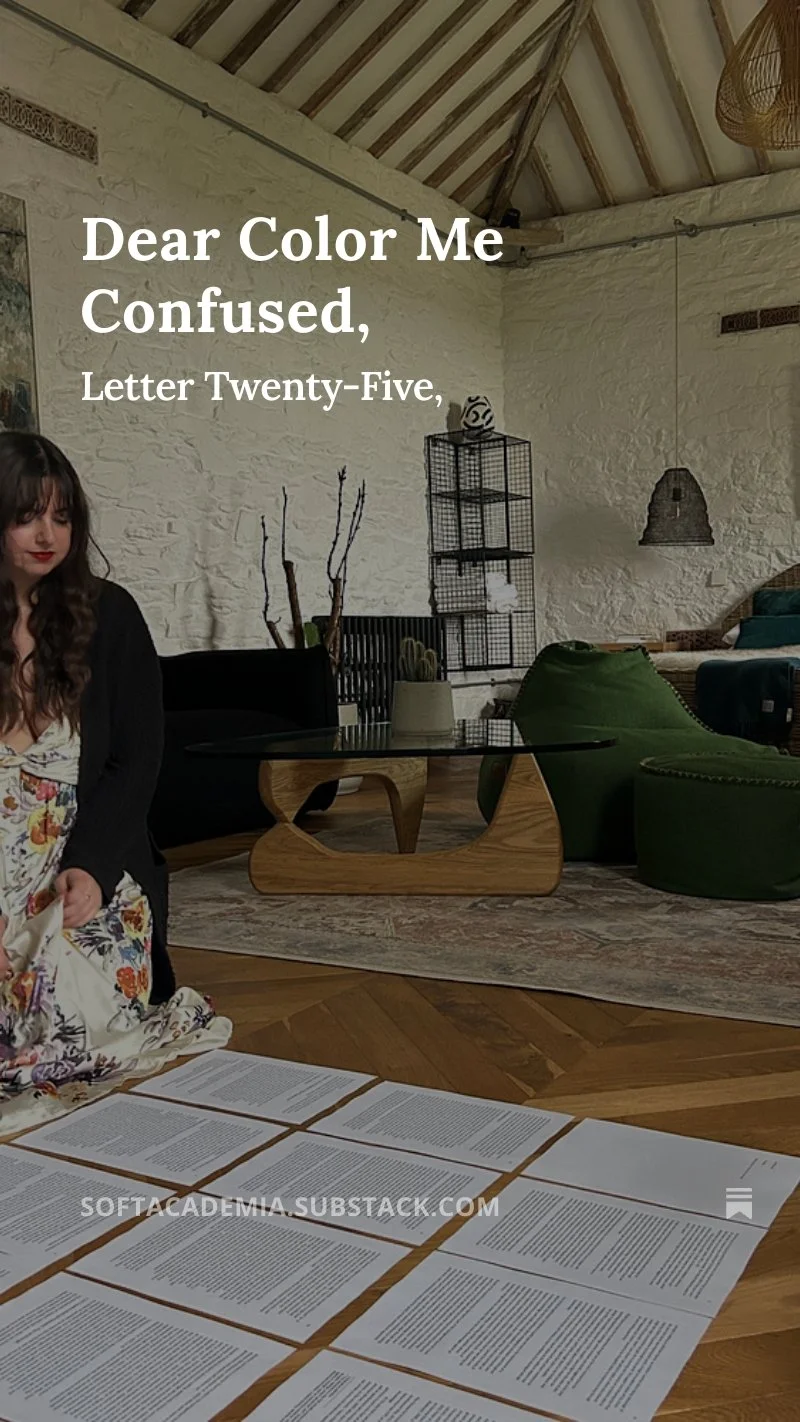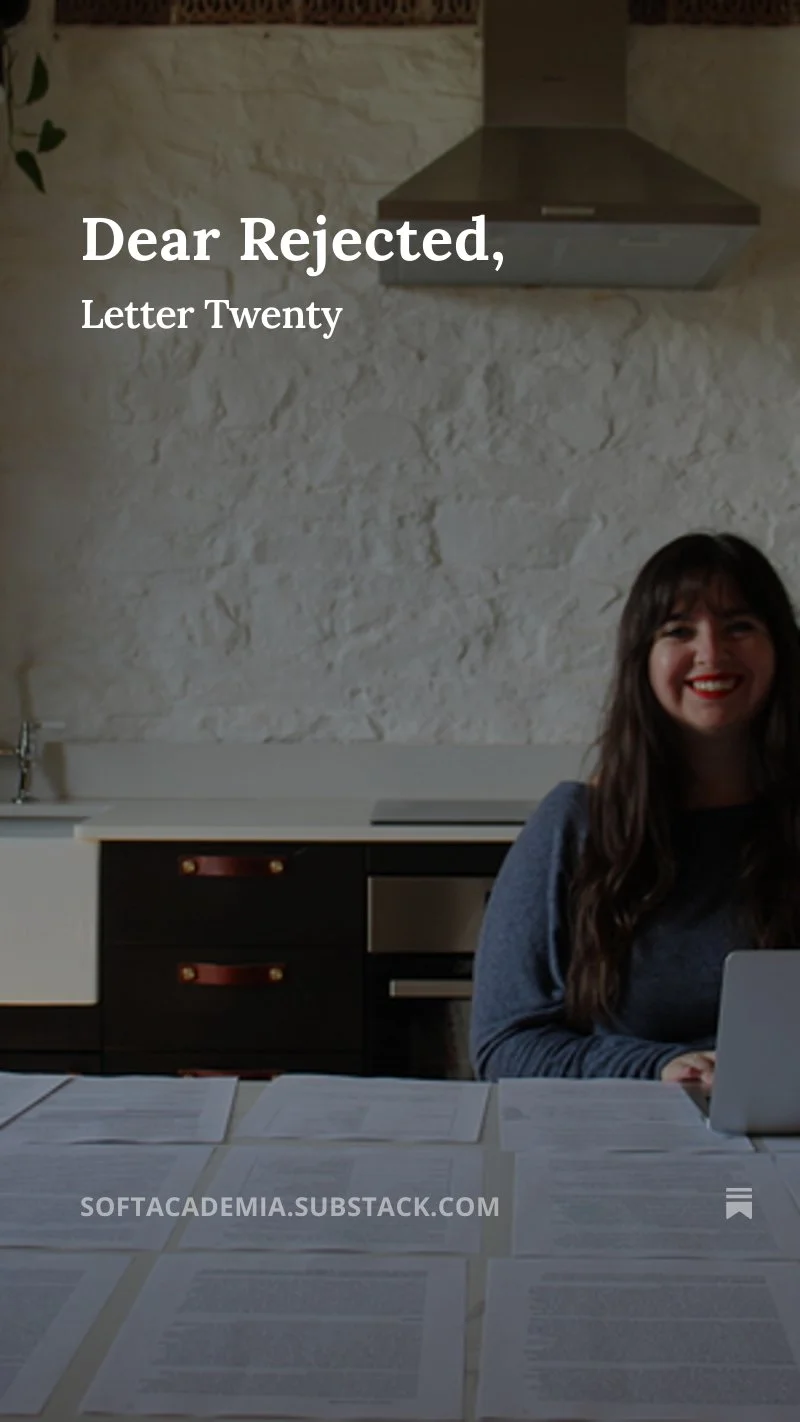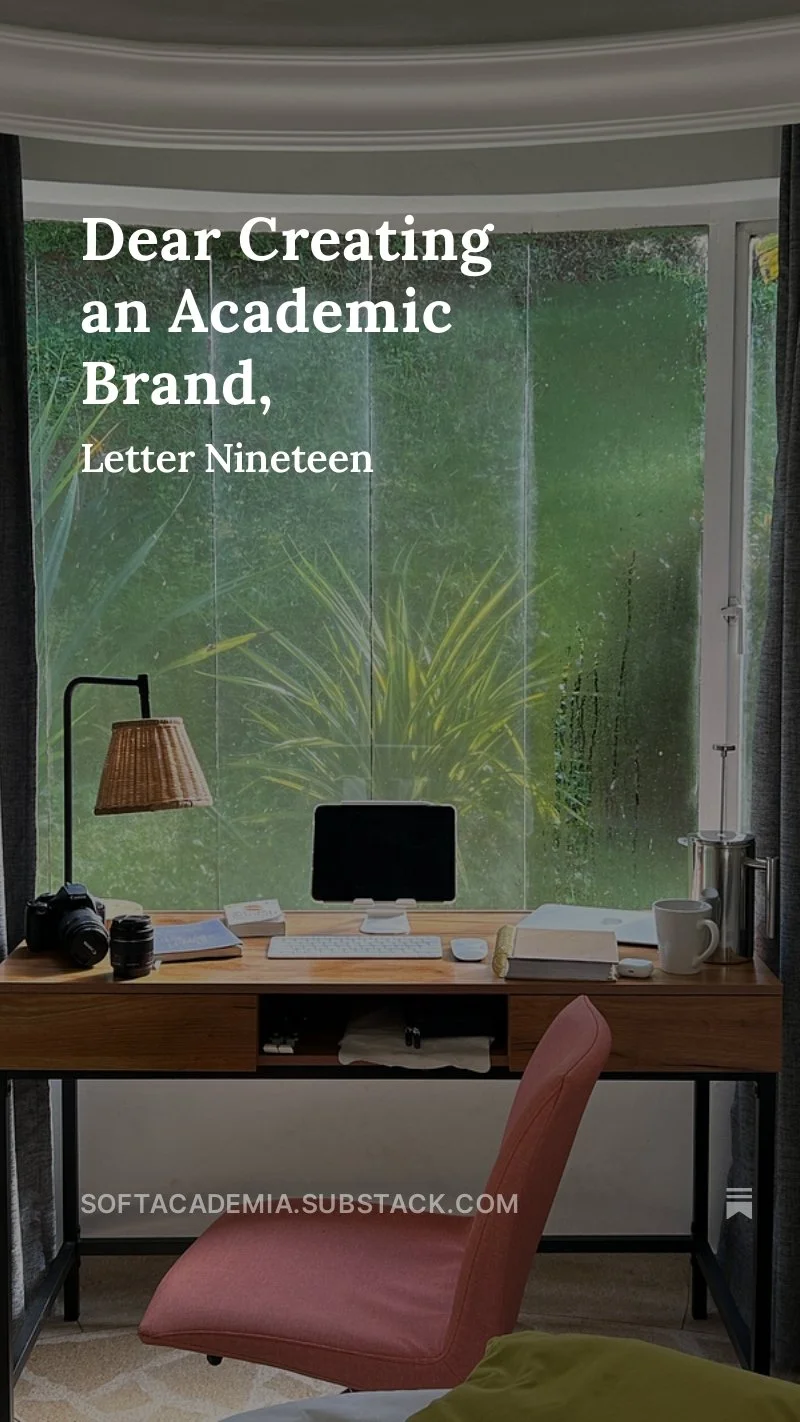Is Psychology a Useless Major in this Economy?
Letter Forty-One: Dear Is Psychology a Useless Major in this Economy?
So, on the record, my perspective on the matter of psychology is a major that teaches you about human relationships, cognitions, behaviors, internal and external experiences, and mental health is an important and valuable major to choose in this economy.
Can a Thesis be Too Personal?
Letter Forty: Can a Thesis be Too Personal?
But one only has to ask the experience of two opposing sports teams on a championship game about what 3-7 score means to know that numbers, facts, carry stories and meanings.
And that who the person reporting on the score is matters because there are many stories to be told about 3-7. I mean I can think of at least four off the top of my head - a story of a underdog, a story of a reigning champion, a story of both teams not making the most of the game, a story of a coach’s final season. Same 3-7 score.
To finally get directly to your thesis question: a thesis is already personal. It’s always personal. Whether people acknowledge it or not.
Will the US Recover From this Brain Drain?
Letter Thirty-Nine: Will the US Recover From This Brain Drain?
And I think that lays out important work for us who produce research, are academics, teach or lecture. Think about the success of your work outside of the ivory tower, outside of the stunting and unsustainable set up of academia, and instead consider what it would mean for it to be successful in your community.
We may not on the individual level be able to change the course of the brain drain, but we are not powerless to show people why these policies and choices matter in the day-to-day. We are not powerless to bring our work out from behind the paywall and consider how it would benefit a teacher, a medical assistant, an electrician, a therapist, a director, a retail shop owner. How do we share why it matters? How do we tell the story of our work?
Does Working in Academia Suspended People in Adolescence?
Letter Thirty-Eight: Dear Academics in Suspended Adolescence
The life of an academic, whether you are in a liberal arts subject, medicine, or beyond, is rife with rejections, being underpaid, cruel comments disguised as feedback, a manufactured sense of urgency, and an instability for funding, for courses, for tenure, for location.
I can’t say those conditions bring out the best in anyone.
In fact, one could say, those are conditions that activate people’s fight/flight/freeze systems and color the world as less safe and the people around them as more dangerous. And what happens when people don’t feel safe and the world feels dangerous? The answer is certainly not know how to navigate relationships, power, and repair with a sense of maturity, kindness, and accountabilit
How Do I Deal with Constant Criticism?
Letter Thirty-Seven: Dear Criticism Coward
I also would not classify what is being said to you as constructive criticism, the type of feedback that is worth believing is presented to you in good faith as something that can help you improve; that is not what is happening here.
What is being said to you is just criticism; unkind, destructive, and unhelpful.
It makes complete sense to me that you’re not feeling confident in yourself and your abilities after hearing comments like those. Even once is enough to leave a deep impact, let alone these comments being a pattern.
What if My Mental Illness is What Makes Me a Good Academic?
Letter Thirty-Six: Dear What if My Mental Illness is What Makes Me a Great Academic?
I think both you and these artists were resourceful and creative, finding ways to get connection and encouragement from the world around you through your external accomplishments. You through a publication record and them through the showing or purchasing of their art.
Is This Really the Most Free Time I’ll Ever Have?
Letter Thirty-Five: Dear Drowning with No Sign of Land
Because as you mentioned, we’re existing in a broken system. Academia as a system certainly does not meaningfully encouraging rest or free time or sustainable workloads. And systems are not for taking on as individuals, that’s something that requires community and organizing and capacity.
Does Everyone Hate Their Thesis / Dissertation by the End?
Letter Thirty-Four: Dear Does Everyone Hate Their Work By the End
I do believe everyone goes through a stage - or many stages - of feeling disenchanted, confused, disappointed, and disliking of the thousands of words they have to output for a dissertation.
Hatred could be and definitely has been a part of it for people (it’s such a recognizable experience that there’s a meme I’ve seen on academic accounts that reads something like “I know a paper is ready to submit once I hate it”).
As could feeling disconnected or apathetic. So I don’t want to say that all the emotional experiences of this stage look and feel the same to people, but it appears as though it is a part of everyone’s journey.
How Do I Develop Writing Samples for a Grad School Application?
Letter Thirty-Three: Dear Developing Writing Samples
Most importantly, the writing samples are demonstrations of your words, your understandings, your conceptualizations and that (usually, though I can’t speak for all) matters much more than where the writing lives (journal, magazine, blog, etc). If one type of writing, or one setting was most important to them, they would have specified that you need to submit an essay or a manuscript or a policy brief for the application, but because they didn’t, it’s most likely indicating that the content matters most above all.
Should I Let My Supervisor Know About My Mental Health Struggles?
Letter Thirty-Two: Dear To Share or Not to Share a Mental Breakdown
Thank you for taking care of yourself and getting the support you need; it matters that you’re alive and here to write this down.
I think what’s most important about the decision to share or not to share is about what would be helpful to you and what your boundaries are.
Because it isn’t the case of you ‘have’ to tell everyone everything or you tell them nothing at all.
There’s lots of choices in between those two things.
How Do I Deal with Embarrassment From Getting Feedback?
Letter Thirty-One: Dear Please Help with Embarrassment
Embarrassment is considered a complex emotion, meaning its root emotion is one of the major five: happy, sad, anger, disgust, and fear (otherwise known as the characters from the first Inside Out).
Which I think allows us to consider something important here: what feelings were also present while you practiced your symposium work.
Is Academia for Extroverts?
Letter Thirty: Dear Is Academia for Extroverts?
Which leads me to say, maybe academia was never set up for extroverts. That it wasn’t designed with folks in mind who feel energized with collaboration, processing aloud, connecting over information and exchange of ideas, or otherwise “peopleing” in their day-to-day activities.
What is Something You Wish You Could Have Told Yourself at the Beginning of Your PhD?
Letter Twenty-Nine: Dear Baby PhD Student
And the better relationship that stressed out, tired, brain-fried you can have with past you with all the excitement and good ideas and time on their hands who was certain you’d know exactly what they meant with this small piece of info, the better the end of the PhD experience will be.
How Do You Communicate as a Woman in Academia?
Letter Twenty-Eight: Dear I Communicate like a Girl
Recognizing that there is an impact to others when asking them to do something (often deemed a women’s communication style), is not wrong.
Adding in signs of emotions through exclamation marks or emojis (another “marker” of women’s communication), is not wrong.
Acknowledging that other people’s schedules might not be able to accommodate our ask (yet again another marker), is not wrong.
Positioning a statement or opinion as your perspective, not the objective Truth, is not wrong. (I hope to have effective made my point by now)
What is the Day-to-Day Life of an Academic Like?
Letter Twenty-Seven: Dear Curious about Day-to-Day Life
Here is a break down of what a day looked like in each year, which had a fundamentally different goal, with the caveat that many days would also look very different from this too - I think that’s part of the benefit of being in academia is (sometimes) having time and space to mold your schedule to whatever that stage of a research study or paper calls for.
How Can I Be a Better Networker at a Conference?
Letter Twenty-Six: Dear Networking Nerves
Remember networking takes practice! It’s rarely something people intuitively know how to do or feel confident in doing. It’s something you try and get a feel for and can get experimental with. Keep a playful mindset with it, and do check in with yourself at the end of the evening to notice what felt good and what felt not so good. That’s information to help you at the next conference, or even the next day of the conference.
How Do I Get Better at Research?
Letter Twenty-Five: Dear Color Me Confused,
When I first felt overwhelmed by the idea of research myself, I went to words. Specifically, to find a definition. Because sometimes you have to break things down into the smallest units you can and make sense in the rebuilding.
Research, in verb form, is to investigate systematically. Systematically is defined as according to a fixed plan or system; methodically. Methodically means in an orderly or systematic manner.
What reassured me at the time was all the objective appearing language of a system and order and fixed plans. Surely then research would be a process that had steps or a pathway or a rubric even. But then I arrived to a place very similar to which you appear to be writing from.
How Do People Keep Going After Rejections in Academic Publishing?
Letter Twenty: Dear Rejected
Academia can, frequently, be a place that people try to characterize as objective and emotionless. I have always been confused how people can celebrate the science of emotions or the science of human behavior, while at the same time trying to frame research & science & academia as a place devoid of emotions or humanity.
It is normal and okay and important that the experience of academic publishing has an emotional impact on you, because you’re a human. A process for navigating this system is something to be developed; be gentle with yourself as you figure it out.
Do I Need an Academic Brand to be Competitive for a PhD?
Letter Nineteen: Dear Creating an Academic Brand
The larger picture of this all is yes, I think it is important and meaningful to have yourself represented in some way online. Whether you consider that an academic brand or a personal brand or a professional social media account!
How to Start When You Don’t Know Where to Begin?
Letter Eighteen: Dear How to Start When You Don’t Know Where to Begin
What you briefly discuss above sounds a bit like first step paralysis. The sort of stuckness that can come at moments of fear or anxiety or uncertainty.
Sometimes, when we’re flooded with these emotions it can be really challenging to get our brains to think clearly or be motivated to take any steps towards achievement. Sometimes, instead of being able to parse out steps to take, our brains swirl with stories about how we won’t get to our goal so why even start.
This is not going to be either of those sometimes, because below I’ve created a roadmap of sorts to help you create your own steps forward.

